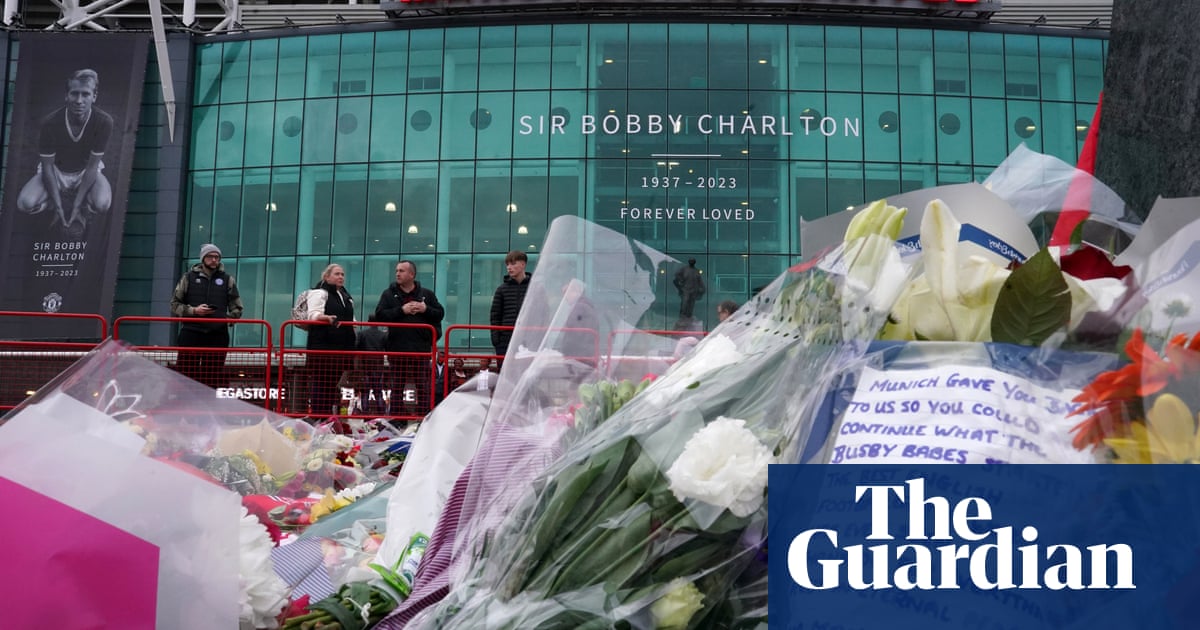
hat if the postman comes?” my aunt asked, as my mum explained the funeral arrangements for Granny. The only way we could do it was in the garden of her old home in Leeds – a 15-minute funeral, with six people attending. And then my mum laughed, big and booming from the bottom of her gut, because even though her heart had snapped in two, the thought of seven mourners spread out two metres apart on the front lawn next to a coffin seemed ludicrous. And the idea of trying to explain what was happening to a postman dropping off some bills and a soon-to-be-cancelled subscription issue of Knitting magazine, even more so.
It’s never going to feel like luck, to be told you have just minutes to say goodbye to a person who’s been in your life for ever, but that’s what it was. Since the lockdown began, many local authorities have banned funerals at crematoriums, and closed places of worship. It was only because Granny didn’t die of the coronavirus that her coffin was permitted to be taken back home. Other grieving families have nothing but a livestream to say goodbye to a loved one, sometimes not even that. The funeral of Ismail Mohamed Abdulwahab, a 13-year-old boy from Brixton in London who died of Covid-19, took place earlier this month without any immediate family present after his mother and six siblings were forced to isolate. Ismail is the one who is difficult not to think of. But there are so many more.
When Mum told me about the plan, I thought of my grandpa’s funeral in the local church; hands holding hands, my snot on someone else’s shoulder, a thumb wiping away the mascara under my eye, and then something like acceptance. How are you supposed to grieve when you can’t touch?
At first, her funeral was as difficult as I expected. Walking past the coffin by the front door that we’d been instructed not to touch. Shouting “Are you ok?” at each other from a faraway distance, like we were taking part in an am-dram Shakespeare play. The funeral directors, all in black on the front lawn, with the sinister bite of a John Carpenter film.
My brother, self-isolating in London, video-called me from his kitchen. Until I found the mute button, we could hear his irregular, raspy breathing through the speaker. Worrying about signal and the interrupting ping of notifications, I thought of photographers who say they can cope with the sight of death because the camera lens acts like a buffer. But as we said a final prayer, the phone in my hand stopped feeling like a distraction and started to feel like a portal. My brother and I were grieving together in a way that wouldn’t be possible had we been seated in rows with our heads bowed.
Traditions can be stifling, but they also help us come to terms with grief. You see stained glass, the stiff blazers, the cold of the church stone, and you think – “this is really happening”. That’s why the open coffins at some Roman Catholic wakes are an important part of helping mourners to come to terms with their loss. Or why they say that when a horse dies, you should leave it in the field for a little while so that the rest of the herd can sniff its body and understand it has gone. By the time the funeral was over, the social distancing had, in some ways, brought us closer. Without the formal iconography of a church or the fellow mourners you don’t recognise, it was easier to wear my emotions. The inability to touch my family only made me realise how much I really wanted to.
I can only wonder how this feels for those watching funerals from a livestream or hearing them secondhand down a phone line. Will there come a moment, some years away, when the grief hits? Sometime in the future, a man will double over in the supermarket, with only the kindness of strangers to help him back on to his feet.
Rev Dr Frank Sellar, a former moderator of the Presbyterian church in Ireland and minister of Bloomfield Presbyterian Church in Belfast, thinks that when this crisis has passed, the dormant emotions of those who have been bereaved will rise to the surface. “It is almost as if things are being put on hold,” he said. “I would imagine when this is over, this will come to the fore.” Some religious cultures observe a 40-day mourning period. Victorian widows dressed in black for two years. But I think our sadness will stretch out longer and darker than that. After this is all over, we will be grieving the lost ability to grieve, to properly say goodbye.












